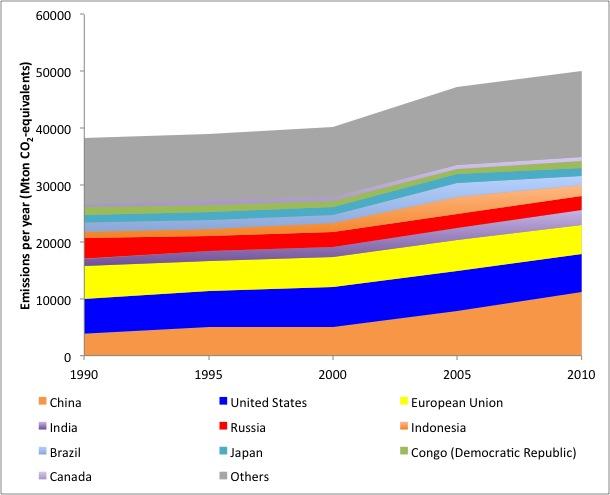Global warming has been a fact for years, confirmed again and again by new scientific data, and it forces us to take action. The "keep calm and carry on" image that big companies and the government present to us is not genuine: it is extremely selective use of this data, or greenwashing. This is hardly noticed, if you only read the headlines quickly. A well-known example is the Tesla subsidy in the Netherlands; invented by someone who works for Tesla, it is absolutely ineffective and only ends up with people who are already far too rich. The image is more important than the figures and an independent critical opinion. What is much more effective are measures to promote cycling, investments in infrastructure for cyclists and increasing road safety: it saves people money, makes them fitter and the environment benefits too. You are not convinced yet?
Car costs and kilometre prices, Traffic jams and too many cars
The facts:
- Cars have become 20% more expensive between 2009 - 2017. Unfortunately, public transport is costing more and more, but that is due to government policy - and it can be done differently!
- Buying a car costs more and more. But... between 1990 and 2017 we drove 40% more kilometres with it
- The Nibud calculates for the kilometre price between 0,39€ at 9000 km - 0,44€ at 10000 - 0,67€ at 11000 km. The ANWB calculates for the kilometre price between 0,31€ p km - 0,43€ - 0,49€.
- There are more and more cars in the Netherlands (also in our big cities), so there are more traffic jams and it is difficult to park everywhere - every motorist notices this. The train is also increasingly full, so cycling is the best alternative: replace the short journeys (up to 7.5 km) in the car by taking the bike. The outcome: with the bicycle, the Netherlands already achieves almost an eighth of its national Kyoto targets
- With cycle highways, the Netherlands (and Flanders?) have a good alternative for commuters who live a relatively short distance from their work. Read more about it in the ANWB test.
Effects on health
Cleaner air makes our lives healthier, because people simply die from air pollution: Death rates from ambient particulate air pollution vs. GDP per capita, 1990 to 2017 = Less cars on the road helps, but every year there are more and more cars on the road, despite the fine words of politicians and companies:
environmental costs / co2 emissions
It is often claimed that our economy is growing and benefits from more air travel, higher mobility (= more cars) and more road transport. Europe keeps track of the data: Transport is one of the biggest contributors to CO2 emissions: https://www.itf-oecd.org/co2-reduction-pledges The reason, of course, is that fires in the Amazon don't cost any money and the trees that are cut down do bring in money. Cars cost a lot of money, but air pollution costs the driver nothing. In order to keep the earth liveable and guarantee a future for our children, the polluter must at least pay. https://www.newscientist.com/article/2093579-was-kyoto-climate-deal-a-success-figures-reveal-mixed-results/ Previous plan to pass on costs: success or failure? Another aspect, which cannot be expressed in money at the moment, is the improved health of people who leave their cars behind and take to their bikes. A similar case concerns the costs and benefits of smoking to our society:
Each year, the sale of tobacco generates about three and a half billion euros in revenue for the national government. At the same time, smokers also generate around three and a half billion euros more in healthcare costs per year, which is a considerable source of income for healthcare and therefore for us doctors. Source: www.nrc.nl/nieuws/2019/09/02/terugdringen-van-het-roken
No one, smoker or non-smoker, will think that smoking generates money: but the costs of smoking are not paid from the excise duty on tobacco, which would be fair. And so the motorist should also pay for the damage he now causes and for which we as a society have to pay the bill - how high the bill will be, should not be so difficult to calculate. You could also introduce a tax on meat or an airline tax. Enough for a future article, I think. future perspective with less cars, air traffic, ... Is it possible to calculate how much a bicycle path yields in comparison to a motorway?
